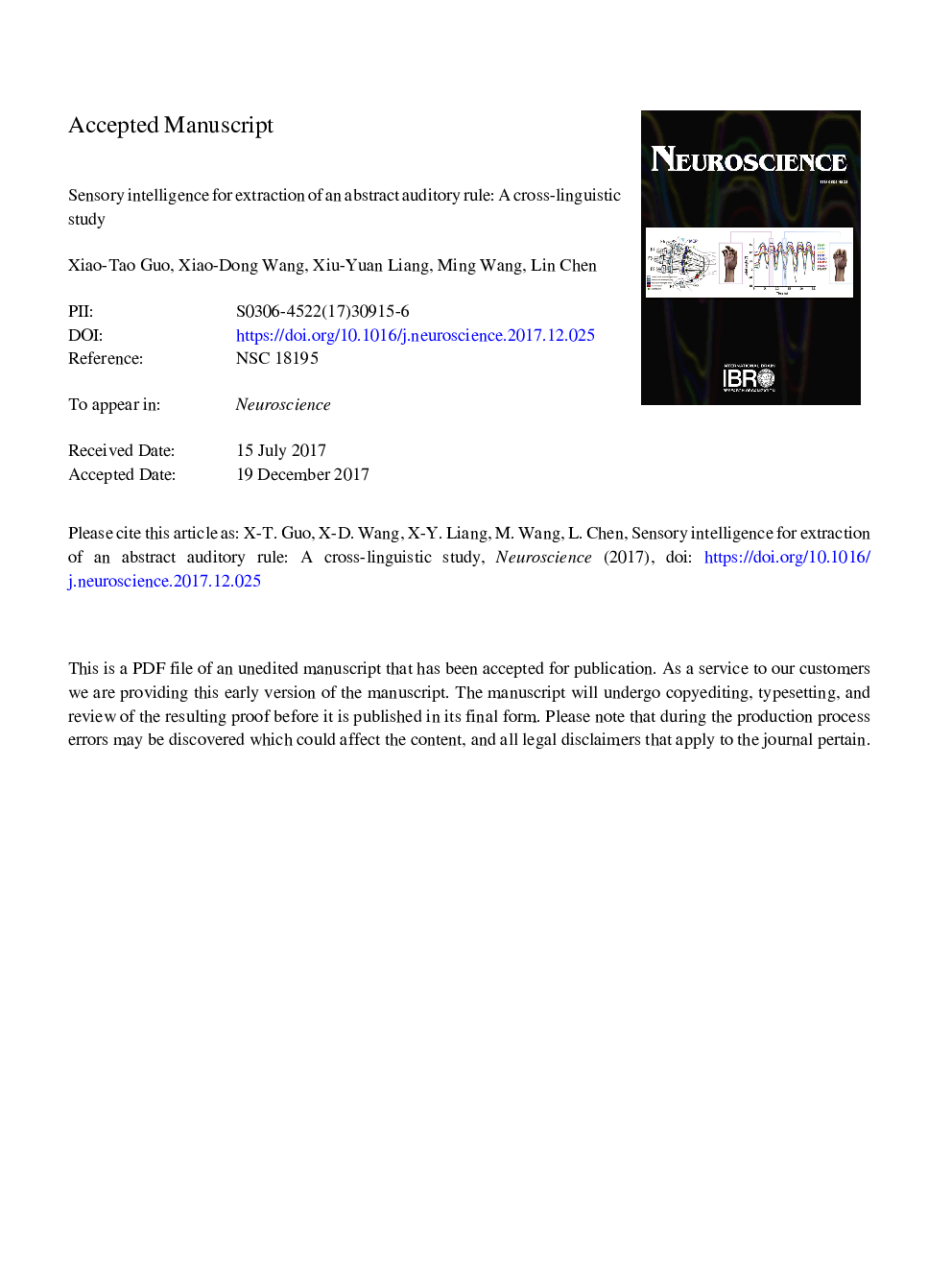| Article ID | Journal | Published Year | Pages | File Type |
|---|---|---|---|---|
| 8840984 | Neuroscience | 2018 | 28 Pages |
Abstract
In a complex linguistic environment, while speech sounds can greatly vary, some shared features are often invariant. These invariant features constitute so-called abstract auditory rules. Our previous study has shown that with auditory sensory intelligence, the human brain can automatically extract the abstract auditory rules in the speech sound stream, presumably serving as the neural basis for speech comprehension. However, whether the sensory intelligence for extraction of abstract auditory rules in speech is inherent or experience-dependent remains unclear. To address this issue, we constructed a complex speech sound stream using auditory materials in Mandarin Chinese, in which syllables had a flat lexical tone but differed in other acoustic features to form an abstract auditory rule. This rule was occasionally and randomly violated by the syllables with the rising, dipping or falling tone. We found that both Chinese and foreign speakers detected the violations of the abstract auditory rule in the speech sound stream at a pre-attentive stage, as revealed by the whole-head recordings of mismatch negativity (MMN) in a passive paradigm. However, MMNs peaked earlier in Chinese speakers than in foreign speakers. Furthermore, Chinese speakers showed different MMN peak latencies for the three deviant types, which paralleled recognition points. These findings indicate that the sensory intelligence for extraction of abstract auditory rules in speech sounds is innate but shaped by language experience.
Keywords
Related Topics
Life Sciences
Neuroscience
Neuroscience (General)
Authors
Xiao-Tao Guo, Xiao-Dong Wang, Xiu-Yuan Liang, Ming Wang, Lin Chen,
